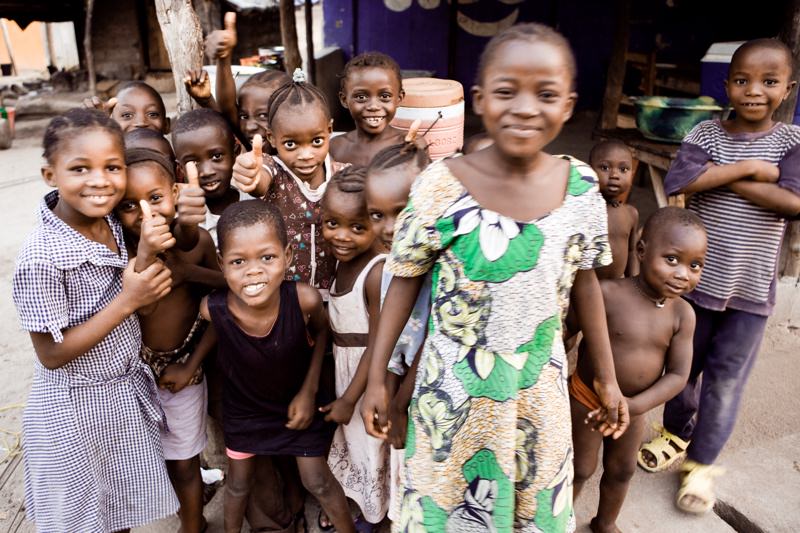SIERRA LEONE'S CURRENT EDUCATION SYSTEM
IN 2000, THE UNITED NATIONS SET A MILLENNIUM DEVELOPMENT GOAL TO ACHIEVE UNIVERSAL PRIMARY EDUCATION BY 2015, TO ENSURE THAT CHILDREN EVERYWHERE COMPLETE A FULL COURSE OF PRIMARY SCHOOLING.
Sierra Leone is far from reaching this Millennium Development Goal:
Currently, 23% of 6-11 year olds have never attended school, and 1/4 of school age children do not complete primary school. Further, only 49% of students who enter Junior High School, graduate from Junior High School. Beyond that, only 24% of students who enroll in high school will actually complete it**. And finally, those students who do graduate from high school are often unable to secure employment.
In Sierra Leone, schools are often places that unintentionally counsel children out of their creativity, empowerment, and a belief that they are capable of surpassing the status quo in the country.
DUE TO OVERCROWDED CLASSROOMS, AND POOR TEACHER SUPPORT – THE CURRENT EDUCATION SYSTEM IN SIERRA LEONE, ALTHOUGH WELL MEANING IS UNABLE TO SUPPORT INDIVIDUALITY, CREATIVE EXPLORATION AND DISCOVERY.
The vast majority of schools in Sierra Leone rely on a style of teaching that promotes rote memorization and students’ ability to retain isolated skills and formulaic responses. The extreme shortage of teachers coupled with a culture of high-stakes testing has created a climate where the role of the teacher is diminished to that of a conduit who transmits the content from the curriculum guide, and copies the practice problems from a textbook onto the chalkboard for students to solve independently.
Schooling centers around standardized testing, and students and teachers alike are seldom encouraged to ask critical questions, construct their own knowledge and perspectives, and boldly take risks. Yet, these are key contributors to developing a child who can creatively create the type of transformation that all of Sierra Leone seeks.
VIOLENCE AND PUBLIC SHAMING IS REINFORCED AS MEANS OF CONTROL
As it has been and is still used in many countries, corporal punishment is both legal and widely used in Sierra Leone, and children come to view power as something to be forcefully exerted over others.

SHINE ON SIERRA LEONE BELIEVES THAT INNER-DEVELOPMENT PROPELS OUTER TRANSFORMATION
Shine On Sierra Leone believes it is essential to redefine what it means to be powerful. We also feel that developing healthy interpersonal relationships requires strengthening one’s self- awareness, emotional attunement, and ability to communicate a wide spectrum of feelings and emotions. We know that diversity in perspectives and disagreements can lead to wonderful innovation and growth, and we work with others’ to discover how to effectively communicate resistance and negotiate disagreements.
